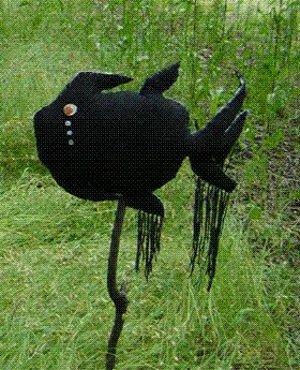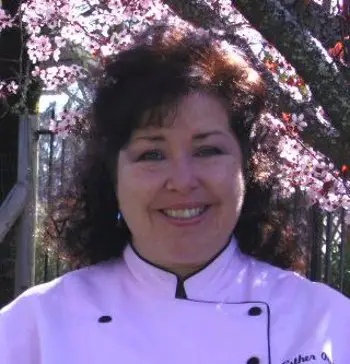LAKE COUNTY – The state has withdrawn proposed cuts announced late last month that would have affected crime victims' restitution claims processing and closed three offices around the state dedicated to that task.
The Victim Compensation & Government Claims Board (VCGCB) announced the cuts late last month but changed the plans about a week later, officials reported.
Rather than going through with the proposed closures and 12-percent budget cuts for counties, the agency will make administrative-level cuts, said Lynn Margherita, a VCGCB spokesperson.
“The clear message is, we don't want victims to suffer,” she said, adding that the situation for the VCGCB and the services it offers is still unfolding.
The VCGCB works with prosecutors and probation officials around the state, as well as the California Department of Corrections and Rehabilitation and the Franchise Tax Board, to collect funds for the State Restitution Fund.
According to the VCGCB, the State Restitution Fund is a “key funding source” for crime victims, and is supplied by restitution fines, diversion fees, restitution orders and penalties paid by criminal offenders.
The agency reported that it also receives federal Victims of Crime Act funds, which come from penalties paid by offenders convicted of federal crimes.
Debbie Wallace, program administrator for the Lake County Victim-Witness Division, said the funds are used to support a wide range of services for crimes victims and their families – from medical and dental care to counseling, home and vehicle retrofits if a crime leaves someone with physical disabilities, and funeral expenses.
Wallace explained that crime victims either apply directly or the Victim-Witness Division goes to them as a result of case filings. The only real requirement for qualifying is that the person cannot have participated in the event.
Last month, the VCGCB notified district attorneys around the state that it was planning cuts to the 21 joint powers agreements it holds with counties, according to Jon Myers, VCGCB deputy executive officer for legislation and public affairs.
“It didn't come easy,” Myers said of the decision, adding, “It was kind of a last resort for us.”
In addition, three counties – Sonoma, Humboldt and El Dorado – initially received letters notifying them that the board's offices in those locations would be closed, Myers said.
Lake County's claims are handled in the El Dorado office, Myers said.
Wallace said the Lake County Victim-Witness Division processed 250 victims' claims last year. The annual monetary amounts of the claims aren't tracked.
Margherita said the office closures weren't a reflection on staff performance, but more about caseload size.
“The counties that were slated to close represented about 6 percent of our operating budget,” she said, but they only processed 3 percent of the total applications.
Myers added, “We had to look at who can overlap and fill in the most effective way,” which is why the three counties in particular were chosen. He explained that many of the 21 joint powers agreements across the state cover several counties.
The closures proposal grew out of a need to close a gap in the VCGCB's funding. The State Restitution Fund has been decreasing and could become insolvent, Margherita said. Therefore, the VCGCB was taking action to try to protect the fund.
Myers explained that the State Restitution Fund had in recent years shown some modest increases and had even built up a healthy reserve.
However, in the 2008-09 budget year the state borrowed $80 million from the State Restitution Fund to meet other needs, Myers said.
“There wasn't any payback time frame put on that,” he said.
Adding to the situation, over the last year the State Restitution Fund has fallen as much as 9 percent below its anticipated revenue. Myers said that is believed to be due to the economy, with criminal offenders unable to get jobs in order to pay their required restitution.
“That kind of caught us all off guard,” Myers said of the fund's dwindling resources.
Lake County District Attorney Jon Hopkins said his office received an e-mail notifying it of the office closures.
“Our staff was concerned because of the good working relationship we have with the El Dorado staff in getting victim compensation claims processed quickly and accurately,” Hopkins said.
Sonoma County District Attorney Stephen Passalacqua released a statement in which he said his office was notified by the board in a May 20 letter that the Sonoma County’s Victims Compensation Program Agreement would be terminated effective June 30, with no prior notice or consultation, and that 12-percent cuts were planned to county contract services across the state.
Passalacqua said the cuts would have completely shut down Sonoma County’s program, leaving victims with no means of submitting claims forms and receiving assistance locally for losses resulting from their victimization.
It also would have meant the loss of three and a half employee positions, including the layoff of two employees with 44 years’ expertise in the field, Passalacqua's office reported.
The counties weren't going to lose services altogether; instead, Myers said the work handled by the offices slated for closure was going to be moved to neighboring counties or sent to the board's Sacramento headquarters.
However, Hopkins said the quickness of the response to Lake County's claims would have been affected, especially if it was lumped in with larger, metropolitan areas.
“We heard back from a lot of the counties,” said Myers. “We knew it was hard.”
Passalacqua reported that he, other district attorneys and the California District Attorneys Association protested the decisions.
As a result, Myers said Julie Nauman, the VCGCB's executive officer, asked her staff to come back with a set of new proposals. The board subsequently decided to tighten its belts more in-house at its headquarters.
About a week after the initial letter went out about office closures and cuts to the joint powers agreements, the VCGCB sent another letter notifying district attorneys that the closures and cuts were being rescinded, Myers said.
Hopkins said the victim advocates who work in his office's Victim-Witness Division were very pleased that the closures and cuts were being rolled back.
Passalacqua, who was “thrilled” to receive that news, said the cuts would have been “a devastating revictimization of crime victims by removing local crime victims’ compensation services along the Northern California coast from San Francisco to the Oregon border.”
He noted that his unit's performance has bucked the statewide trend and actually increased Sonoma County's contribution to the State Restitution Fund over the last several years.
Passalacqua cited a December 2008 state audit that he said showed the value and efficiency of serving crime victims at the local level as compared to the state.
He said the audit also suggested the VCGCB work to increase the number of victims served through the units at local centers.
E-mail Elizabeth Larson at This email address is being protected from spambots. You need JavaScript enabled to view it. . Follow Lake County News on Twitter at http://twitter.com/LakeCoNews and on Facebook at http://www.facebook.com/pages/Lake-County-News/143156775604?ref=mf .

 How to resolve AdBlock issue?
How to resolve AdBlock issue? 







